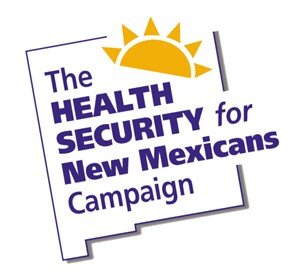Listening to Our Health Care Providers: What We Learned from the Third Meeting in the Health Security Plan Design Series
On Saturday, December 11, we hosted a very interesting virtual panel of health care professionals from a variety of practice areas in New Mexico.
Their purpose: to describe the administrative frustrations they face every day that impact patient care and contribute to burnout. Watch the recording here.
To fix this broken system, we need to have a full picture of what the problems are. The panelists and additional contributors helped to draw out some of these serious challenges, and we are grateful for their participation and their willingness to share their experiences and insights.
Our next session in the Health Security Plan Design Series will explore different provider payment methodologies that may help to solve the problems health care professionals and patients now face. We will let you know as soon as it’s scheduled.
What We Learned: Administrative Hassles That Impact Patient Care
Some of the issues that came up again and again in the meeting were:
time-consuming prior authorizations for tests, procedures, and referrals
constantly changing formularies (lists of which procedures and medications a particular insurer will cover)
billing codes that do not reflect the level of complexity in medical encounters, particularly in behavioral health, where the same billing code is used for relatively simple cases and for extremely difficult and complicated cases
higher pay for procedures than for time spent problem solving and counseling patients
complex bill coding systems that require coding specialists to properly file for reimbursement and that can be manipulated to maximize payments
inequality of payments for family practice practitioners v. specialists, and for nurses and nurse practitioners v. physicians who are doing the same procedures
opaqueness and instability of pharmaceutical pricing, and the outsized role of pharmacy benefit managers (companies that manage insurers’ prescription drug programs)
pay-for-performance programs and quality-of-care metrics that have high financial and time costs but do not serve individual patients well
What We Learned: The Effect on Patients
All of these issues have a real impact on patients:
Patients struggle to get the care they need, waiting for prior authorization from their insurer before they are able to see the specialist that their health care provider has referred them to, or get the test or medication that their health care provider has prescribed.
Patients are too often unable to afford the pharmaceuticals they are prescribed, or need to constantly switch their medications because of which drugs their insurer covers that month.
Patients may never get the chance to have an in-depth conversation with their provider, who is incentivized to offer (and bill for) a procedure rather than sit down and initiate a life-changing discussion that could help a patient change their daily habits to benefit their health.
There were many more issues discussed during the meeting. We encourage you to watch the recording to learn more!
The December 11 meeting was moderated by Donna Dowell, CNP, a certified nurse practitioner in Placitas.
The panelists:
Danny Cross, RPh, independent pharmacist in Carlsbad
Kathy Fresquez-Chavez, DNP, FNP-C, MSN, independent provider in Valencia County
Lara Goitein, MD, pulmonary and critical care physician in Santa Fe
Rick Madden, MD, family physician in Belen
Thomas C. Thompson, PhD, MP, ABN, ABMP, clinical and neuropsychology-prescribing psychologist in Las Cruces
Additional health care professionals who attended the meeting also spoke about the challenges they encounter. Gloria Doherty, PhD, MSN, RN, ACNP-BC, talked about several issues facing nurses and nurse practitioners, as well as larger issues in the system; Bernadette Luján, DOM, shared what she experiences as a doctor of oriental medicine; and Ricardo Gonzales, PhD, contributed the challenges he sees as a clinical psychologist practicing in northern New Mexico.

